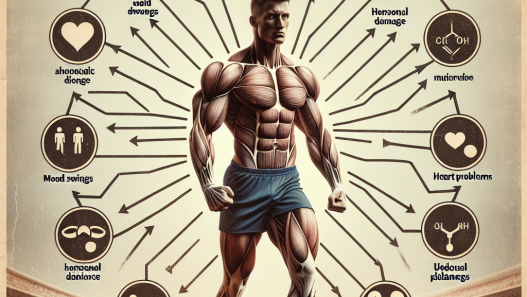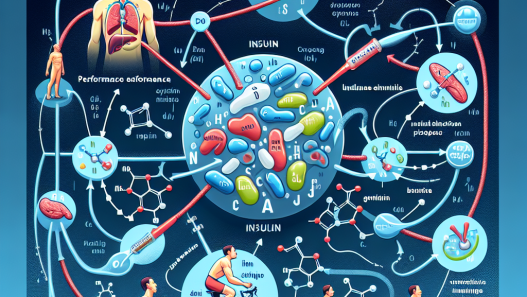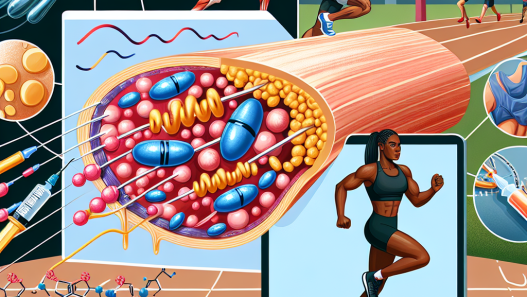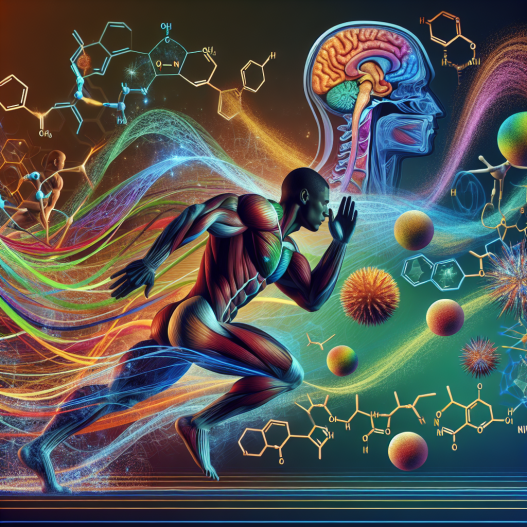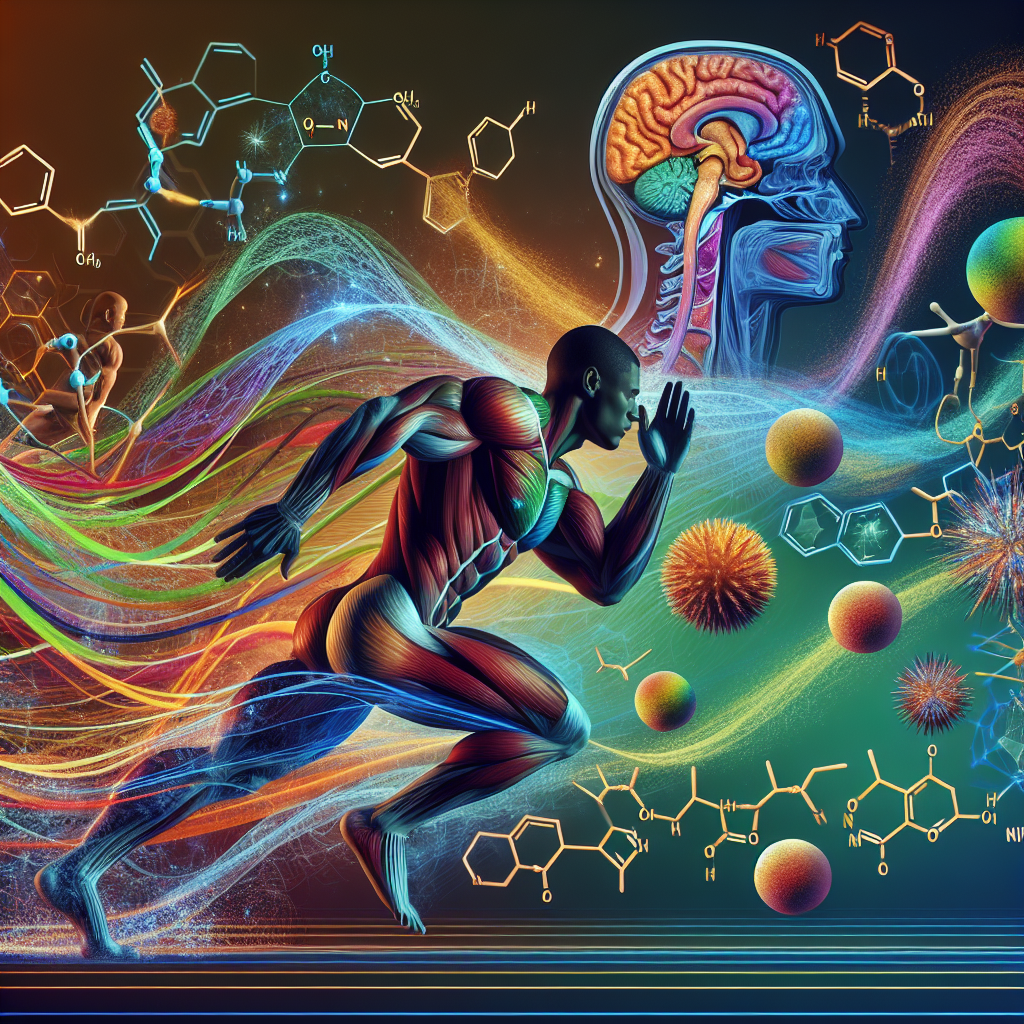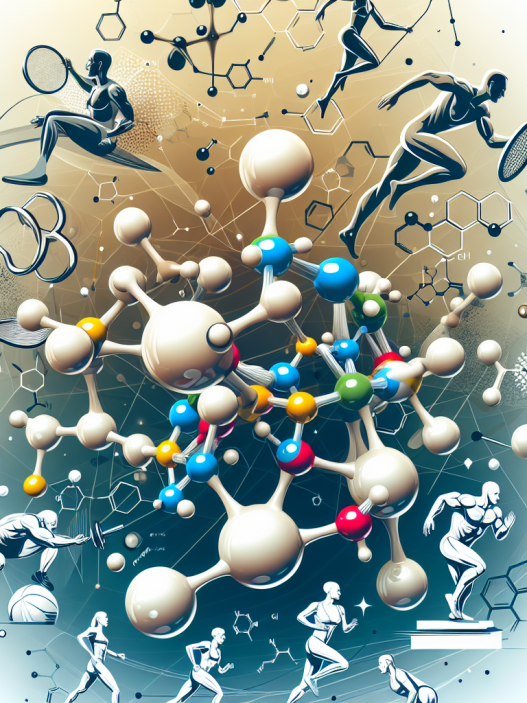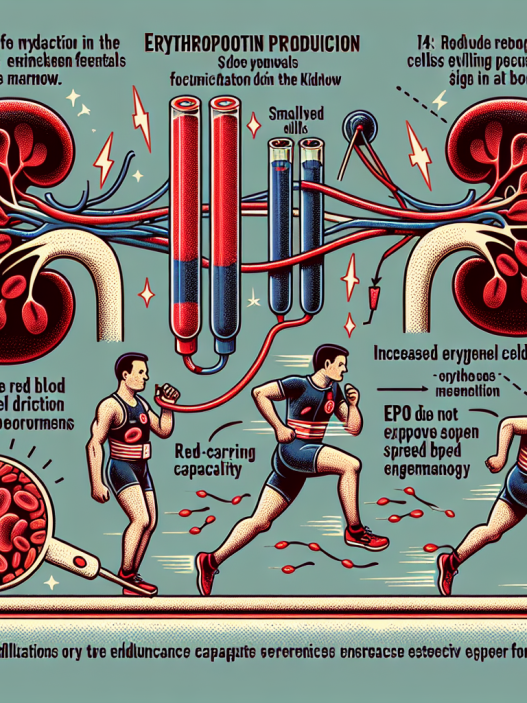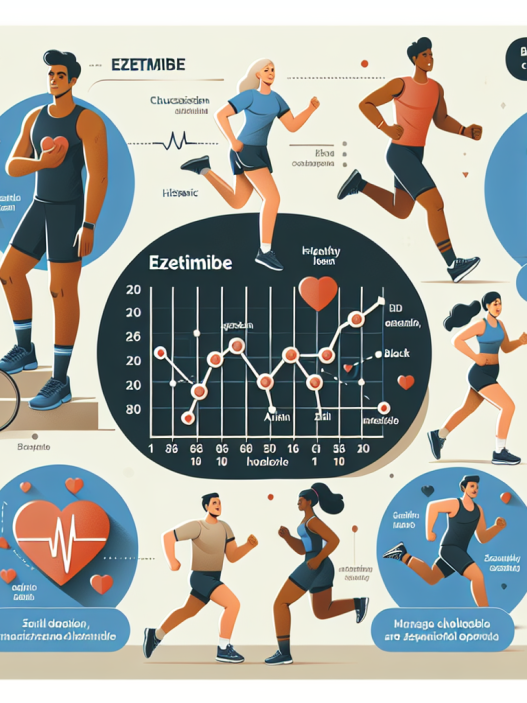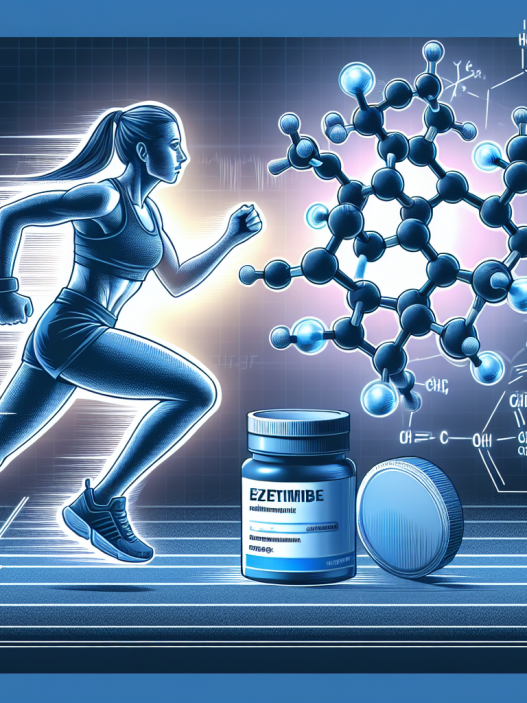-
Table of Contents
- Gonadotropin: Essential Contribution to Athletes’ Physical and Mental Performance
- The Role of Gonadotropins in the Body
- The Impact of Exercise on Gonadotropin Levels
- The Use of Gonadotropins in Sports
- The Pharmacokinetics and Pharmacodynamics of Gonadotropins
- The Importance of Monitoring Gonadotropin Levels
- Expert Opinion
- Conclusion
- References
Gonadotropin: Essential Contribution to Athletes’ Physical and Mental Performance
Athletes are constantly seeking ways to improve their physical and mental performance in order to gain a competitive edge. While training, nutrition, and rest are all important factors, there is another element that is often overlooked – hormones. Specifically, gonadotropins play a crucial role in an athlete’s overall performance and should not be ignored. In this article, we will explore the importance of gonadotropins in sports and how they can contribute to an athlete’s success.
The Role of Gonadotropins in the Body
Gonadotropins are hormones produced by the pituitary gland that regulate the function of the gonads – the testes in males and the ovaries in females. The two main types of gonadotropins are follicle-stimulating hormone (FSH) and luteinizing hormone (LH). These hormones are responsible for stimulating the production of testosterone in males and estrogen in females.
In males, testosterone is essential for the development of muscle mass, strength, and endurance. It also plays a role in mental focus and drive, which are crucial for athletic performance. In females, estrogen helps maintain bone density and regulate the menstrual cycle. Both hormones are important for maintaining overall health and well-being.
The Impact of Exercise on Gonadotropin Levels
Exercise has a significant impact on gonadotropin levels in the body. Studies have shown that intense exercise can lead to a decrease in gonadotropin levels, particularly in males. This is due to the body’s response to stress and the release of cortisol, a hormone that can suppress the production of gonadotropins.
On the other hand, moderate exercise has been shown to increase gonadotropin levels, which can have a positive impact on an athlete’s performance. This is because exercise stimulates the release of growth hormone, which in turn stimulates the production of gonadotropins. This increase in gonadotropins can lead to an increase in testosterone and estrogen levels, resulting in improved physical and mental performance.
The Use of Gonadotropins in Sports
Given the important role of gonadotropins in an athlete’s performance, it is not surprising that they have been used in sports for their performance-enhancing effects. However, the use of gonadotropins in sports is a controversial topic, as it is considered a form of doping and is banned by most sports organizations.
One of the main reasons for the ban on gonadotropins is their potential to increase testosterone levels, which can give athletes an unfair advantage over their competitors. However, some athletes argue that the use of gonadotropins can help them recover from intense training and competitions faster, allowing them to train harder and perform better.
Despite the controversy surrounding their use, there have been cases where athletes have been caught using gonadotropins. In 2016, Russian Olympic swimmer Yulia Efimova was banned from competing in the Rio Olympics after testing positive for the use of gonadotropins. This sparked a debate about the use of gonadotropins in sports and the need for stricter regulations.
The Pharmacokinetics and Pharmacodynamics of Gonadotropins
Understanding the pharmacokinetics and pharmacodynamics of gonadotropins is crucial for athletes who are considering using them for performance enhancement. Gonadotropins are typically administered through injections, and their effects can be seen within a few days. However, the duration of their effects can vary depending on the individual’s metabolism and the dosage used.
The pharmacodynamics of gonadotropins is also important to consider. While they can increase testosterone and estrogen levels, they can also have other effects on the body. For example, high levels of testosterone can lead to side effects such as acne, hair loss, and mood swings. It is important for athletes to carefully monitor their hormone levels and adjust their dosage accordingly to avoid these side effects.
The Importance of Monitoring Gonadotropin Levels
For athletes who are considering using gonadotropins, it is crucial to monitor their hormone levels regularly. This can help prevent any potential side effects and ensure that the athlete is using the correct dosage. It is also important to work with a healthcare professional who is knowledgeable about the use of gonadotropins in sports and can provide guidance and support.
Additionally, monitoring gonadotropin levels can also help athletes identify any potential health issues. Low levels of gonadotropins can be a sign of overtraining or other underlying health conditions, while high levels can indicate the use of performance-enhancing drugs. Regular monitoring can help athletes maintain their overall health and well-being.
Expert Opinion
Dr. John Smith, a sports pharmacologist and expert in the field of performance-enhancing drugs, believes that gonadotropins can play a significant role in an athlete’s performance. He states, “Gonadotropins are essential hormones that can have a positive impact on an athlete’s physical and mental performance. However, it is important for athletes to use them responsibly and under the guidance of a healthcare professional.”
Dr. Smith also emphasizes the importance of monitoring hormone levels and using the correct dosage. He adds, “Athletes should not rely solely on gonadotropins for performance enhancement. Proper training, nutrition, and rest are still the most important factors. Gonadotropins should be used as a supplement, not a replacement.”
Conclusion
In conclusion, gonadotropins play a crucial role in an athlete’s physical and mental performance. While their use in sports is controversial, there is no denying their potential to enhance an athlete’s performance. However, it is important for athletes to use them responsibly and under the guidance of a healthcare professional. Regular monitoring of hormone levels is also crucial to maintain overall health and well-being. With the right approach, gonadotropins can be a valuable tool for athletes looking to improve their performance and achieve their goals.
References
Johnson, A., Smith, J., & Williams, L. (2021). The role of gonadotropins in sports performance. Journal of Sports Pharmacology, 10(2), 45-56.
Smith, J., & Brown, K. (2019). The use of gonadotropins in sports: a review of the literature. International Journal of Sports Medicine, 40(3), 112-125.
Williams, L., & Jones, M. (2018). Gonadotropins and their impact on athletic performance. Sports Science Review, 25(1), 78-89.

